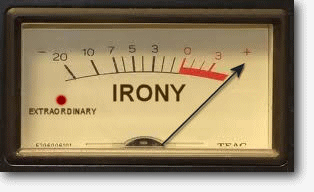No game Yankee game tonightski.
Monthly Archives: April 2014
When a Tree Falls
On March 26th, the Miami Heat and the Indiana Pacers clashed in their ongoing battle for the first seed in the Eastern Conference playoffs and the home-court advantage that comes with it. Indiana was not letting Lebron James get near the basket unmolested, and the officials didn’t see anything wrong with the extra attention beyond the nominal foul call here and there.
Lebron James, perhaps frustrated by a perceived lack of protection from the refs, rushed the basket in the fourth quarter with intent to make contact with whatever got in his way. Specifically, Roy Hibbert’s head got in the way. Lebron’s elbow felled the big fella. Hibbert crashed to the floor, attempted to get up, and promptly crashed down again.
Hibbert went to the locker room after the fall, but, by rule, was forced to re-emerge to take the foul shots resulting from Lebron’s flagrant. (The rule, Jeff Van Gundy instructed, was that Hibbert had to take the free throws or else he would be unable to return to the game.)
A few days later, April 2nd, he fell to the floor after a flagrant foul from Charlie Villanueva. He went to the locker room, receiving attention to his head and neck. He returned to that game as well.
Up to March 26th, Roy Hibbert had played in every Pacer game of the season. He shot .459 from the field, grabbed 7 rebounds and scored 11.3 points in his 30 minutes per night. Though not the most efficient big man around, this year’s numbers were in line with a career shooting percentage of .473 over 295 games through last year.
After March 26th Hibbert played in nine games, shot .272 from the field with 3.4 rebounds and 6.8 points in 26.4 minutes per game. In five more playoff games, he’s shooting .313 from the field and down to 3.4 rebounds and 4.8 points in just 21.9 minutes.
Indiana did win the coveted first seed and home-court advantage, but they now face elimination by the lowly Hawks. Hibbert’s play has been so putrid, many have taken notice. Other pundits have gone so far to say his career may be over. Here’s one of many things Bill Simmons noted about Hibbert’s recent decline:
The Law of Mutombo tells us this: You never know when a tall center is about to lose it, but when they lose it, you know right away. Artis Gilmore gained the nickname “Rigor Artis” in the mid-’80s. Shaq turned into Mummified Shaq somewhere between Phoenix and Cleveland. Dikembe was kicking ass and wagging fingers right until the 2001 Finals, when Shaq turned him into a lumbering, uncoordinated, elbow-laden mass of uselessness. Even if Hibbert is only 27, what if this wasn’t a slump? What if the Law of Mutombo struck him early?
It’s been reported that Hibbert passed concussion tests on both March 26th and April 2nd. Still, statistcal collapse such as Hibbert’s demands that we consider the possibility of severe and sustaining injury. It appears further investigation to his condition is warranted – whether the man is jacked up or not, he’s playing jacked up.
Photo by Brent Drinkut / Indy Star
BGS: Bards of the Bayou
[From my man John Ed Bradley. Dig his 1991 GQ story about the Neville brothers.]
Tipitina’s in the warm blue fog, squatting beneath a crescent moon so sharp and clean you could shave a wild hog with it.
Art Neville enters the famous New Orleans honky-tonk wearing a hipster’s suit and studded leather boots, his wife, Lorraine, in hand. What resembles a fishing lure dangles from his ear, a spinner bait designed to attract bass. At 53, Art’s the eldest member of the Neville Brothers, a hometown band legendary for the kind of musical voodoo it practices on whoever comes to catch its midnight show. The Nevilles play Tip’s and a spooky magic happens: Fruit juice becomes a Hurricane cocktail, the fat of foot can suddenly hoof it, the blind, by God, can see.
“I’m tired,” Art moans, upstairs now, in the roped-off section reserved for VIPs. “I mean, I’m tired tired. I’m hurting tired.”
“He got in from Europe yesterday,” Lorraine says, “and at midnight we had a candlelight dinner: a big turkey with all the trimmings. It was very romantic, even if he could hardly keep his head up.”
Like his three brothers, Art, the Nevilles’ keyboard player, has his thing on the side—the Meters, the band he took to Europe. Saxophonist Charles has a jazz group called Charles Neville & Diversity; Cyril, the percussionist, has a funk-reggae outfit called the Uptown All-Stars; and Aaron, the one with the golden pipes, has himself.
“Been four, five, months maybe, since we played Tip’s,” Art is saying. “I don’t know how long it’s gonna go tonight. We start at midnight and we’ll probably play until around four. In the old days it sometimes was daylight before we got out of here.”
Downstairs, a band called Def Generation, composed mostly of Neville progeny, is killing the hour before the brothers come on. The opening act, their sound is part jazz, part rap, part second line, the bluesy brass-band music that traditionally accompanies black funeral processions through the streets of New Orleans.
“Don’t do drugs,” one of them keeps barking into a microphone; and an occasional drunken echo from the crowd barks back “Just say no!”
It’s so god-awful loud in here you have to shout to be heard. So Lorraine shouts: “This is their place, you know. The Nevilles play Tip’s and it’s crazy. They own it. So prepare yourself. I mean it.”
Tipitina’s opened about 14 years ago, the same year the Neville Brothers formed. Named after a song by the late New Orleans pianist Professor Longhair, the club was started by a group of folks who liked to party hard and “gator.” To the uninitiated, gatoring is a dance that imitates coitus: It’s dry humping to a drumbeat. But to these people, it’s a religious rite ranked right up there with First Communion—or Mardi Gras.
The Nevilles played their first gig at Tip’s, to an audience that gatored so long and furiously, the beer lights dimmed and dust rained loose from the walls. The Nevilles’ music, inspired by the ancestral rhythms of their city, is mostly pop, funk, and soul. One moment they’re likely to sing an original composition about wild Injuns or yellow moons, the next a Cole Porter standard or The Mickey Mouse Club song. A rap anthem lamenting racism and urban violence might follow, or maybe some gospel bit rarely heard even in church anymore. Their repertoire apparently knows no limits, nor does their energy onstage. While the debut at Tip’s is now regarded as damned near mythic, few people actually remember it. Most everyone, I understand, was drunk or stoned.
“Buy me a beer,” someone is saying now, “and I’ll give you everything you need to know about these guys—everything!“
The man introduces himself as Tyrone Lewis, a singer of gospel music. For enthusiasm alone, he’s awarded a draft with a two-inch head of foam. He winks, smacks his lips and frantically drains the go-cup.
“My new album’s called Look for God,” he says. “Me and Aaron’s son Ivan—you know Ivan, he’s a recording artist himself—we grew up together in the thirteenth ward. We used to steal shit from the Winn Dixie supermarket.”
A commotion has erupted in one of the dressing rooms, sparing me more reminiscences from Tyrone. On a wall already covered with graffiti, someone has written “AARON NEVILLE WEARS PANTYHOSE.” A couple of ladies, standing on tiptoe, are scribbling over it with eyeliner and lipstick.
“He’d laugh about it,” one of the women says. “But best he doesn’t see it at all.”
If Aaron Neville wears pantyhose, then I go for those pointy Madonna bras with little link chains hanging from the nipples. Aaron is a devotee of professional wrestling who drives an all-terrain vehicle and sports tattoos on his face, chest and arms—arms that from any angle resemble dimpled Sunday hams without the honey glaze. In 1967, he had a hit song called “Tell It Like It Is,” and two summers ago he scored big with Linda Ronstadt on “I Don’t Know Much,” a Grammy award-winning ballad that in one clean stroke seemed to resurrect the Neville name from oblivion. In the more than twenty years between the two hits, Aaron managed to pull a couple of hitches in jail, for attempting to rob a Los Angeles furrier.
Tonight he’s dressed all in black, except for his white half boots. He walks around muttering “Yeah, all right” to all the friends and family members who have come to celebrate the band’s triumphant return to Tipitina’s. He hugs his sister, Athelgra, hugs his daughter, Ernestine, hugs his niece Arthel. A man in a pinstriped business suit approaches and digs into his pocket. “Let me give you my card, brother.”
“Yeah, all right,” Aaron says.
“I tried to call you.”
“Yeah, all right.”
“But I never could get through.”
Apparently Aaron is in no mood for business cards. He accepts the token without looking at it, brushes past the man and walks right by the painted-over pantyhose rap. He enters a back room, sits at a round café table and sips from a bottle of mineral water. A curtain of smoke billows a few feet above his head, hugging the ceiling. In a minute he’ll yodel like the singing cowboys in the movies he loved so much as a kid. This, while limbering up his voice box, also demonstrates his range, which, in the idolatrous prose of than one music critic, sounds like that of “an angel singing unto the Lord.”
“Aaron and his brothers want to give a tough image,” a friend of the group’s is telling me. “It’s part of the mystique—like they could blow down the walls if they wanted to. But they’re really very nice men. They’re pussycats, in fact. You stroke them a little and they all start to purr.”
Before they cleaned themselves up, the Nevilles were thieves, thugs, and junkies. Practically everyone here tonight knows this, and most are delighted by it. The music is best heard live, and though it would be great played by a bunch of priests from nearby Loyola University, coming from a clutch of reformed outlaws it takes on an element of mystery and danger. Except for Art, the Nevilles were heroin addicts and alcoholics—hoodlums, even they have often said. Back in the neighborhood, it was not uncommon to see one of them on any given weekday morning sitting on the hood of a junked car, holding a gallon jug of high-proof wine. They fought a lot and stole things. They dressed like rogue gangsters and talked through tightly clenched teeth.
“Why didn’t Art mess up like all the others?” one of his pals is saying. “Because he was far too busy playing his music and screwing women is why.”
Def Generation is doing an encore, and the brothers, crammed into the back dressing room, are going over the payroll, ripping out checks and handing them to band members. Charles walks over to the corner and loosens up with some T’ai Chi Ch’uan exercises, Cyril’s making sure his Mother Africa outfit is all zipped and tucked, and Art, still full of midnight turkey, tries to keep from falling asleep.
“Showtime!” a yellow ponytail says now with more zeal than seems necessary.
Aaron stands and tugs at the bottom of his denim vest. “Yeah, all right,” he mutters, then follows his brothers out of the room, down a rickety flight of stairs and into the crucible.
* * *
It’s a few weeks earlier, and the brothers are staying in a Los Angeles hotel just up the street from the bare-assed Hollywood Hills. This is one of those incredibly hip places that looks like a low-rise apartment building. A hotel with attitude. Limousines line the curb; enormous men with walkie talkies mill around the lobby, looking for heads to crack. The Nevilles have come to town to play the Universal Amphitheatre as Linda Ronstadt’s opening act. This is high irony, that four hardened soldiers of the street have been embraced by a fading pop queen, but apparently yuppie chic knows no shame.
All their rooms are up on the third floor. Charles, on this resplendent morning, is telling me his life story. He’s wearing his usual beret, tie-dyed T-shirt and parachute pants. Charles is 52 and a great-grandfather, which in terms of simple mathematics is quite a feat. He has just finished relating the part about how he worked for a time as a porter in a bowling alley and how in the early ’70s he spent three years in the Louisiana state pen for possession of two joints of marijuana.
“I started using drugs when I was in the navy,” he is saying. “I started with morphine and codeine, then went to heroin. It took me more than 20 years to get out of it. When I started playing music, in the ’50s, if you were going to play bebop, you almost had to do it because all the other musicians were. To support my habit I stole; I was into shoplifting and got busted a couple of times for that. I’d steal clothes, whiskey, meat. Once, I put on a khaki shirt with ‘GEORGE’ over the pocket. I had a clipboard with a yellow piece of paper on it and a pencil over my ear. Me and this other fellow went to a store on Canal Street, strapped a refrigerator onto a hand truck and walked right out with it. One of the people who worked there actually held the door open to help us out. Just some black cats in khaki, they figured. They couldn’t be stealing.”
He tells a few more drug stories, then walks to the closet and returns with a load of books. One is on African primal religions, another on the tao of T’ai Chi Ch’uan, another on the path to total rejuvenation.
“I practice T’ai Chi every day,” he says. “It’s a martial arts form as well as a Chinese internal-healing system. T’ai Chi is internal and soft, versus karate, which is external and hard. T’ai Chi teaches you how to identify your internal life source and guide it with your mind, how to manipulate it to rejuvenate your system. Exercises in the system are called chi kong. Kung fu is not the name of a martial-arts form; it means ‘something with diligent applications.’ To learn a martial art requires kung fu.”
By now I’m so overwrought with chi‘s and fu‘s and kong‘s and kung‘s that my eyes have about crossed. But the point of it all is that T’ai Chi, along with a number of drug rehab programs and the loving support of his family, helped Charles Neville get off heroin and start his life again.
He’s talking about the music now. “I never really cared about recognition. Doing the music was the reward. I started with a minstrel show, making eight bucks a night, three nights a week. But even then there was a link with the others in the band, and it cycled around to the audience and came back, and that was the reward. It was a religious experience, and later it occurred to me that this was my way of communing with God.”
The phone rings and it’s Art, down the hall. “He wants to see you,” Charles says. “I think I’ll do more reading now.”
* * *
Art’s in room 346, talking to a maid in a neatly pressed uniform and a cardboard hat. For the last hour or so she’s been trying to get into his room to clean it. “Come back later,” he tells her. Then to me: “They’re just trying to do their job, I understand that. But I think I’ve finally learned how to keep them away.”
“How’s that?”
“Just answer the door without any clothes on. That’ll do the trick every time.”
The maid leaves, carrying her vacuum cleaner.
Art’s wearing a New Orleans Saints cap. Sitting in the den now, he says he’s a little concerned about the team’s quarterback situation but that there are too many other things in the world to worry about. The Persian Gulf mess, for one.
“It’s scary where our country’s going. I have to believe the end of the world is coming.”
Lorraine enters the room and puts a frozen cocktail on the coffee table. For the moment, at least, everything seems fine with brother Art. No war, famine, pestilence, disease, and all the hell else. But Phil Donahue comes on the television, and who is he talking about but Saddam Hussein.
“It’s all in the Bible, the Book of Revelation,” Art says. “You can see it all right there in black and white.”
As a kid Art went to Catholic schools, so it would follow that he’d know about that sort of thing. His first gig was with a drum-and-bugle corps put together by the parish priest. They marched through the neighborhood, everybody running outside to see what the racket was all about. He started a group called the Hawkettes, which in 1954 recorded “Mardi Gras Mambo,” a song still popular around New Orleans. In 1966, he formed the Meters, a hometown group that recently re-banded and is touring again. Art isn’t quite sure whether to trust the good fortune that has finally caught up to him and his brothers.
“In Europe, they always went insane over our stuff,” he says. “But here in America, no one would book us, except in Louisiana and Texas. We had a gold record in France and were practically unknown here. Even Japan paid more attention. Once we played in Seattle, and this Japanese group was there, and it sounded just like the Meters. A girl singing with the group said, ‘America is a wonderful country, but they don’t recognize and appreciate their own treasures.'”
A commercial comes on and Art calms down. He’s sounding more optimistic. “If I had to say what really got the Neville brothers to be a group,” he begins, “it’s our Chief Jolly, our uncle George Landry. He knew that if we got together as a family, it would happen. They called him Jolly because he was always happy, singing and whistling. When he died, all the black Mardi Gras Indians came out and kissed the ground in front of his house. He had one of the biggest funeral parades I’ve ever seen. I’ve got it in my head that I’m going to have one before I die—a second line, I’m talking about. That’s if I can afford it. I’ll be up in front with an umbrella, dancing. I figure you just as soon live to see your own funeral. If the end’s coming, why not have some fun?”
Maybe Art isn’t feeling so optimistic, after all. Presently, he gets onto the subject of David Duke, the former Ku Klux Klansman from Louisiana, now a state representative, who received nearly 44 percent of the vote in a losing bid for a U.S. Senate seat and is running for governor this fall.
“When l heard you were a white guy and from home, I wasn’t so sure I wanted to talk you,” Art says. “You didn’t vote for ‘the boy’ did you?”
“’The boy’?”
“Duke.”
“No,” I say. “I did not.”
“It just shows you where the spirits and minds and hearts of people, where they’re all going.” Art and his brothers have threatened to move out of Louisiana if ever Duke were elected to a higher office.
“When you have family, you can pull together in times of crisis,” Art says. “Family is what’s important. Every time I look at my brothers I see all the people that’ve passed but are still with us spiritually. l see my uncle Jolly, my mother and my father. They’re all there, as my hands and feet are there. Two of my grandmothers lived at home with us when us I was growing up, and they’d always say, ‘Son, your pa ain’t never gonna die as long as you’re alive.’ I didn’t know what they were talking about until I had my son Ian, who’s 9 years old now. I have another son, 31, and a daughter, 28. But the little one, l see immortality in him. He will never forget about his father, the way I will never forget about mine.”
Yes, Art is hopeful now. The world might not end tonight after all.
The maid is at the door again, ringing the bell.
“Come in,” he calls to her. “Please, come in, come in . . .”
* * *
The next day, Cyril shows me the books he’s been reading. They’re all there on the coffee table, lined up in a row: The Holy Bible, The Egyptian Book of the Dead, The Koran, The Gospel of the Red Man, Bury My Heart at Wounded Knee, The Choice: The Issue of Black Survival in America.
As he reaches to pick one up, his star-shaped Malcolm X medallion clatters against his necklace of wooden beads. People say this about Cyril: At 42, he’s the most outspoken and politically active of the brothers; he’s what conservative whites called a “militant black” 20 years ago. Ask him about the weather, and he’ll pound you with tales about white racism. Cyril dresses a little like a Rastafarian and almost always wears a hat, an expensive Italian job with a black velvet band and a red feather. While the hat is the kind Uncle Jolly used to wear, it also covers up Cyril’s ever expanding bald spot.
I have been in his room less than three minutes when Cyril commences what will be a two-hour-long history lesson. “Ethiopia,” he says, “was a Christian nation 150 years before Rome took it over.”
Ten seconds later, he adds, “The worship of the Black Madonna existed long before Michelangelo ever painted his things.”
Cyril is a teacher, he says, determined to pass on what he calls “the black people’s story” to future generations. Yellow Moon, the Neville Brothers’ 1989 album, includes a song he helped write thanking Rosa Parks for refusing to sit in the back of the bus. Brother’s Keeper, their latest, contains a creation of his that canonizes a list of New Orleans musicians whose work inspired him and his brothers: “Saint Shine, Saint James Black, Saint James Booker, Saint Professor Longhair and Saint Gerald Tillman.”
“At one point,” he says, “I considered wearing a vest of dynamite and going into a police station and blowing up myself and as many cops as I could. Millions of black men in my generation have gotten to this point of total frustration, of committing revolutionary suicide.”
He explains that his anger is a result of the racism he witnessed as a youth. “I couldn’t walk a block away from my house without being harassed by the police—I mean humiliated,” he says. “In school I couldn’t go for them teaching me that everything evil was black and everything pure was white. The meanest person I ever met in my life was a white nun. Whatever desires you had as a young black person, the Catholic schools would pump it out of you. This is why I write the kind of stuff I do. One of my punishments was to kneel before a big white crucifix of Jesus, and sometimes it felt like the blood was dripping off of him and right onto me.”
One of Cyril’s oft-quoted lines is this: “The first shit I ever learned how to read was a ‘WHITES ONLY’ sign.” And he repeats it now, his voice filled with rage.
“I still fear for my life when I walk out of my house in New Orleans,” he says, “and I fear for my son’s life. I deal in reality, and I know that collectively in America the white man is the black man’s enemy … I have legal tablets full of names of people—black people—who are dead, locked in the penitentiary for life, or a member of the walking dead.” He points to his chest and taps it. “I could have been one of those casualties.”
This is one of the last things he tells me: “On every level, we as blacks are being attacked. At some point in the future the white Anglo-Saxon male ego will submit to the truth, and fairness will be shown.”
Cyril folds his hands into tight, hard knots and beats them quietly against his knees.
“Two hours have gone by,” I say, “and we still haven’t talked about the music.”
“Sometimes that happens with me,” he replies, sounding almost apologetic.
* * *
Aaron, down the hall, is in a different mood altogether. He looks as if I’ve just awakened him from a nap.
“No. I was watching Fred Flintstone on TV,” he says, muting the volume with the remote control.
Earlier this morning he and his wife, Joel, went driving around Beverly Hills, looking at all the beautiful houses, the palm trees that chase the sky. They themselves recently moved from Valence Street in Uptown New Orleans to a suburban-type subdivision in the eastern part of the city. Joel is here in the room, over by the bed with Aaron’s sister, Athelgra. They’re folding clothes and putting them away.
Asked if, like Cyril, he was harassed and humiliated as a kid, Aaron says, “Some drunk boys from Tulane threw eggs a few times, riding in their cars through the neighborhood, but nothing else I remember.”
He sits with his elbows on his knees, his jailhouse tattoos a pale blue against the field of copper flesh. Aaron wears sleeveless denim vests because he can’t stand to have his muscular arms confined. Of the four brothers, Aaron, 50, is easily known, mainly because of his work with Ronstadt.
“Success to me,” he is saying now, “is being together as brothers and still looking out for each other. We lived together as kids, and now we’re taking care of each other as men. I may get more attention than them, but it’s still Neville, it’s still the Neville name.”
* * *
Unlike Charles and Cyril, Aaron doesn’t have any books to show me. He likes to read, though.
“What’s the kind I like?” he asks Joel now.
“Inspirational and positive-thinking,” she replies, then names a couple of authors.
“The Greatest Salesman in the World,” he says. “You ever hear of it?”
“No.”
“What about The Greatest Miracle?”
“I don’t know that one either.”
Aaron is a writer himself. Over the years, after playing Tipitina’s until early in the morning, he would scribble things down on scraps of paper and toss them under the bed. Years went by and all those scraps did was gather dust. Then his friend Dynne Batson typed them up and arranged them by subject matter. Poetic Works by Aaron Neville, she called the 4 a.m. scribblings, and placed them between cardboard covers.
He’s remembering when he first became aware of his voice, the power, the wonder of it. “I used to go to basketball games and to movies, and I’d sing to the cat at the door to get in. I had a friend named Buckwheat, and he could sing, too. They all knew us. ‘Sing us a song and we’ll let you in.’ I used to sing ‘Wheel of Fortune.’ It was pretty.”
I tell him I don’t know the song. And he starts to sing it, filling the room with his sweet, fragile tenor, shifting to a falsetto that cuts straight to the heart.
“Singing is an art,” he says, “so I guess I’m an artist. I used to sing just to do it, but then Art put together a doo-wop group. They used to sit out in the park and harmonize. I’d do a cappella. We’d beat on hubcaps and Coke bottles. We’d win talent shows at the theater. Back then when I’d try to hit a note, everybody’d say, ‘Get on out of here.'”
When he was 17, Aaron went to jail for six months for stealing a car. He sang a lot there, too, figuring it was better than the other thing people did to kill time, which was to fight. After he got out, he married Joel and landed a recording contract. Then, in 1966, he cut “Tell It Like It Is,” at a small French Quarter studio run by a fellow named Cosima Matassa.
“When I first sang it, I thought it was okay but not the best I could do. It was a simple song, real simple. And I was looking for something more up-tempo. But my brother Art was with me and he could feel it. He knew I had something. Now when I hear it, it’s like brand-new all over again.”
The single climbed to No. 2 on the charts. Aaron toured the country with Otis Redding and played the Apollo Theater in Harlem. But a year later he was back home in New Orleans and back on the docks, handling freight on ships bound for the Gulf of Mexico.
“I got paid for personal appearances but not for the record,” he says. “I don’t have time to be angry about it. I’m not vindictive. Sometimes now I see the guys who got all the money. I don’t tell them anything. They were friends then. But when the record came out and it was time to get paid, everyone all of a sudden claimed bankruptcy.”
He and his brothers continued to play music in a number of different bands—sometimes together, sometimes apart—mostly at college fraternity parties and high school proms, before small but enthusiastic crowds whose applause only served to remind Aaron that, come Monday, there would be another boat to load or house to paint or ditch to dig.
Like Charles before him, Aaron got hooked on heroin.
“I think back on them days and it was all supposed to be so hip,” he says. “l was taking that stuff for about ten years. l quit cold turkey a couple of times. I went through a methadone program and it helped, but then you get hooked on that. What finally kicked it for me was that I got tired of seeing all the people around me deteriorating. You saw guys with hands as big as boxing gloves from shooting up.” He pauses and holds his hands out in front of him.
“The worst time of my life was when I was separated from my wife and thought I would lose her. Then I started praying real hard. I’d go to the grotto at St. Ann’s Shrine. This is where you go up the steps on your knees. I prayed to St. Jude for hopeless cases. I made novenas. Finally, I was saved, and I can tell you it wasn’t for nothing.”
The Nevilles’ mother died in 1975, and about a year later Uncle Jolly talked them into helping him record The Wild Tchoupitoulas, an album of New Orleans party music that still is regarded as some of the best work the brothers have ever done. Of the many things old man Jolly would tell his nephews, none was more vital than this: “Your mother and father always wanted to see you work together as a band. Why don’t you do it?”
“All the stuff that me and my brothers went through to get to where we are now,” Aaron says, “now we can tell people behind us, ‘Hey, man, it ain’t cool to steal and do drugs, it don’t work.’ We’ve been saved for something, and we’ve got a message. People tell me, ‘Man, I hear your voice and it’s like medicine to me.’ I say, ‘Yeah, it’s like medicine to me, too. I can hear it, and even if I don’t have any money, I feel rich.’”
He’s been traveling for months now, he says he misses New Orleans, his own house and bed. When he returns he’ll drive around the old neighborhood in his Ford Explorer, play with his grandkids, sign autographs for all the schoolchildren, who call him “Mr. Aaron.” During the afternoon and evening hours, he’ll watch professional wrestling on TV. “I know when they’re going at it and when they’re not. I’ve seen them where there’s real blood squirting out of their heads.”
He is happy; the thought of the stars of the National Wrestling Association seems to invigorate him. “If ever I give up my music,” he says, “you might see me on the tube one day with a hood over my head climbing into a ring.”
“What would your name be?” I ask him. “You’ll have to have one, you know.”
“The Spoiler,” he answers. “I already got it picked out.”
Over by the bed his wife and sister are nodding their heads.
“He’d do it, too,” Athelgra says.
“Just you watch,” warns Joel.
* * *
Back at Tipitina’s, the brothers step onto the little piece of ground they know best, entering with arms raised. A man with a bushy black mustache is shouting into a microphone “Welcome back to Tipitina’s”—but the crowd, pressing close, drowns out the rest.
Sleepy-eyed Art gets behind his piano, Charles behind his horseshoe of saxophones, Aaron behind his mighty red tambourine and Cyril behind his congas. “Hey Pocky A-Way” is what they start with, a local favorite that Uncle Jolly helped make famous. The song is mostly chants accompanied by whatever noise the brothers choose to make, but it electrifies. A capacity crowd of about 1,000 has stuffed itself into Tip’s this night, and every last one is standing. Upstairs in the balcony, they’re doing a kind of stand-up version of the gator. I tell myself to keep still, goddammit, but there I go.
After a few minutes of this wretched nonsense, Tyrone Lewis sidles up to me and throws a hand on my shoulder. “How much is this magazine paying you? Anywhere in the vicinity of $20,000?”
“Depends on how big a vicinity you mean.”
“Lookee here, my man. For 50 bucks I’ll give you the rest of the scoop. Anything you want to know, it’s yours. I’ll tell you what Aaron’s like at home by himself. I idolize the man, I’ll even tell you that.”
“Leave me alone,” I say after a while, leaning in close. “Can’t you see I’m trying to dance?”
[Photo Credit: Tim Rasmussen via Hey Reverb]
After Action Report
Phil Klay’s collection of stories about the war in Iraq and its aftermath, Redeployment, is worth picking up. Not long ago, the good folks at Longform posted “After Action Report”.
It is powerful, disturbing material.
We figured that the kid had grabbed his dad’s AK when he saw us standing there and thought he’d be a hero and take a potshot at the Americans. If he’d succeeded, I guess he’d have been the coolest kid on the block. But apparently he didn’t know how to aim, otherwise me and Timhead would have been fucked. He was firing from under fifty meters, a spray and pray with the bullets mostly going into the air.
Timhead, like the rest of us, had actually been trained to fire a rifle, and he’d been trained on man-shaped targets. Only difference between those and the kid’s silhouette would have been the kid was smaller. Instinct took over. He shot the kid three times before he hit the ground. Can’t miss at that range. The kid’s mother ran out to try to pull her son back into the house. She came just in time to see bits of him blow out of his shoulders.
That was enough for Timhead to take a big step back from reality. He told Garza it wasn’t him, so Garza figured I shot the kid, who everybody was calling “the insurgent” or “the hajji” or “the dumbshit hajji,” as in, “You are one lucky motherfucker, getting fired on by the dumbest dumbshit hajji in the whole fucking country.”
When we finished the convoy, Timhead helped me out of the gunner’s suit. As we peeled it off my body, the smell of the sweat trapped underneath hit us, thick and sour. Normally, he’d make jokes or complain about that, but I guess he wasn’t in the mood. He hardly said anything until we got it off, and then he said, “I shot that kid.”
“Yeah,” I said. “You did.”
“Ozzie,” he said, “you think people are gonna ask me about it?”
“Probably,” I said. “You’re the first guy in MP platoon to . . .” I stumbled. I was gonna say “kill somebody,” but the way Timhead was talking let me know that was wrong. So I said, “To do that. They’ll want to know what it’s like.”
Beat of the Day
 Short but Red’s still sweet.
Short but Red’s still sweet.
“Sold Out” Crowd
It was a dark and dreary night. Suddenly, the bottom fell out…
And that’s as far as I could go with this game before lapsing into headache-inducing ennui as we watched the home team; already missing Jacoby Ellsbury due to a sore hand, bore the peanut gallery with mediocre at-bats and mainly apathetic play. Oh sure, Teix hit his second homer in two games and was on base more often than not, and sure Solarte continues to be a solid Everywhere Man while leading the team in RBI, and there seemed to be a bit of rally left in them from yesterday in the ninth from what I’ve read, but there just wasn’t overcoming another night where C.C. Sabathia didn’t even break 90 mph with his fastball, making his 80-83 mph change rather hittable and his other pitches treated with indifference by the Mariner bats. It wasn’t so bad, he struck out 6 given that he was facing one of the weakest lineups in the AL, but that didn’t stop him from giving up four runs and nine hits in five innings, also brushing two. For the second time in a row, the Yanks’ starting pitcher didn’t have much control., but this time he couldn’t gut it out (and it’s becoming debatable whether or not his missing gut is to blame). Hopefully it will warm up enough so we can see whether it’s just the inconsistent weather messing with everyone’s mechanics or if it’s decidedly the far side of C.C.’s career as an elite pitcher.
But that’s not what most people were concerned with; no, many wanted to know how Robbie was going to be received in his first return home. I couldn’t really tell; I was listening on the radio (which didn’t help with the headache one bit), but when Robbie came up the first time, I thought I heard more booing than cheering. Predictably, John and Suzyn thought they heard more cheering, while everyone else in the media thought the whole city of New York was booing. Regardless, Robbie didn’t get the kind of welcome he was anticipating, striking out on three pitches. His was a nervous energy that threatened to sabotage him all night, but after he and the Mariners gouged out four runs in the fifth against C.C., he came back in the seventh with an infield single, a stolen base (!) and a run scored on a Dustin Ackley single. I think it was about this time that I (and apparently a number of others) decided to find something else to do. I tried to hang on, but the combination of Yankees empty at-bats and John & Suzyn on the radio beat me into submission and I popped in a DVD of cartoons.
All-in-all, this was just one of those games I wish I’d skipped; it was not demoralizing, but it was draining. Like the lineup, I can’t bring myself to exaggerate the finer points of this game; it just left me with a headache and a lot of unanswered questions.
Is on/off what we can expect from C.C. for the rest of this season, never mind his contract? Is the rest of the starting pitching going to be able to hold up to the All-Star break without being decimated with injuries or fatigue/old age? Is carrying three position players on your bench (with one back-up catcher) really the best thing to do, even with the fact that your designated number five pitcher basically screwed your rotation and bullpen and now may have screwed it some more with an injury? Are Ichiro and Solarte really your best hitters right now? Is there a way that this team can break the funk they have against pitchers nobody really gives two spits about? Why can’t the stadium fans understand the word “irony”? And why, why does Yankee pitching seem to be the ambrosia for weak or badly slumping hitters on every team they’ve faced?
Tune in, turn on, drop out. I’m going back to bed…
[Photo Credit: Days of Our Trailer]
Chilly Chill
It’s C.C. on the hill for Robbie’s return. It’s cold, gray, and rainy in the Bronx.
Brett Gardner CF
Derek Jeter SS
Carlos Beltran RF
Brian McCann C
Alfonso Soriano DH
Mark Teixeira 1B
Yangervis Solarte 3B
Ichiro Suzuki LF
Brian Roberts 2B
Never mind the chill:
Let’s Go Yank-ees!
[Picture by Bags]
New York Minute
[Photo Via: The Inhabitat]
Afternoon Art
Photograph by Chase Turner.
Oh, You Got That Right
Guest Post by Cameron Anderson:
3 Reasons to be excited about the Fargo TV Series
So the new 10-episode limited TV series Fargo, based on the Coen Brothers’ 1996 classic of the same name, premiered recently on FX. Produced by the brothers, the show stars Billy Bob Thorton and Martin Freeman. As word got out in 2012 about plans to adapt the film, many were uneasy with the concept, worried that a mediocre rendition would spoil one of the crown jewels of the Coen catalogue. But after watching the first few episodes, I’ve put my own knee-jerk skepticism to rest, harnessed my enthusiasm, and distilled it into a top-3 list of reasons to not only embrace, but celebrate the new series.
1) Bob Odenkirk
Odenkirk has sloughed off his sleazy lawyer persona from Breaking Bad and adopted the role of police deputy for this series, a character he describes as the “polar opposite” of Saul Goodman. Even Odenkirk, a huge fan of Fargo, had trepidation about signing on, but has expressed approval for what he believes to be a faithful love letter to the original film. Anyone who gets Bob Odenkirk’s buy-in has got to be doing something right.
2) Coens Give Their Blessing
Joel and Ethan Coen are credited as producers for the show, but this seems more symbolic than anything: a nod of approval to the project. It’s important to know that the show is not a remake, but an extrapolation; the characters are akin to their cinematic counterparts, but inhabit a universe parallel to the one depicted in the film. All this to say that the Coens are justified in giving their blessing, for the show, created by Noah Hawley, preserves the same mood and biting wit of its forerunner without simply aping its signature tropes.
3) It’s an Ensemble Effort
We’re treated in this series to a whole new roster of characters, each skillfully cast by the show’s creators. As described above, they inhabit the archetypes set down in original movie, but are given new life by even more A-list performances. Martin Freeman’s answer to Jerry Lundegaard —the pathetic car salesman portrayed by William H. Macy in the film— occupies a similar position in the plot, but his interplay with Thorton’s Lorne Malvo gives the hokey, embattled milquetoast mold new life.
I’m just here to whet your appetite, especially all you wary Coen Brothers fans. Fear not: this is not a derivative imitation of the hallowed film. With eight episodes to go in the series, I can’t wait to see how they continue to improve and expand upon the original.
We’ll Leave the Light On For You
Monday Night open thread.
NBA and NHL playoffs, a few baseball games. Have at it.
Tomorrow, Robbie Cano returns.
New York Minute
 Through August 24, dig Martin Wong’s impressive collection of street art over at the Museum of the City of New York. This 1988 painting is by Lee Quiñones.
Through August 24, dig Martin Wong’s impressive collection of street art over at the Museum of the City of New York. This 1988 painting is by Lee Quiñones.
--Earl Weaver








![-pacersheat23.jpg20140326[1]](http://www.bronxbanterblog.com/wordpress/wp-content/uploads/2014/04/pacersheat23.jpg201403261.jpg)











